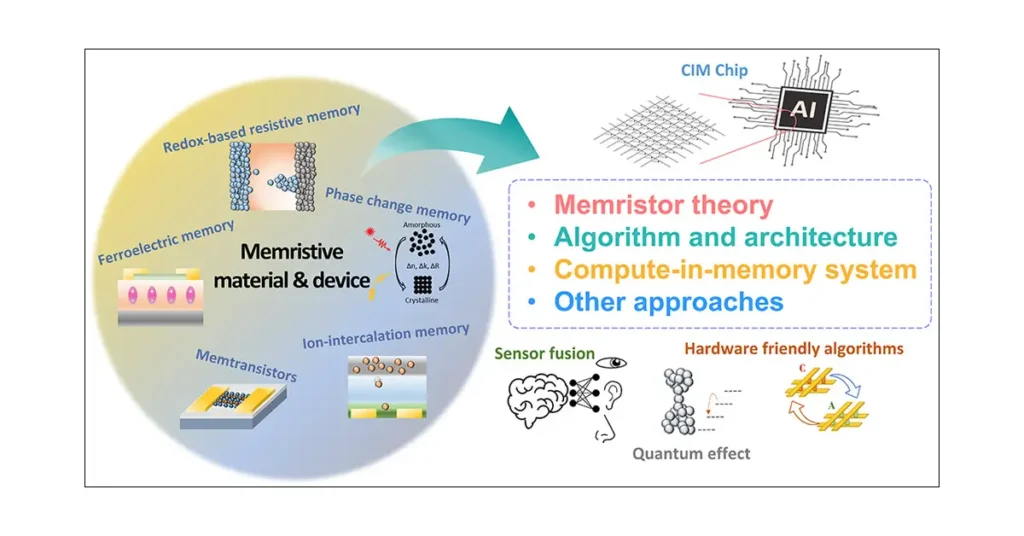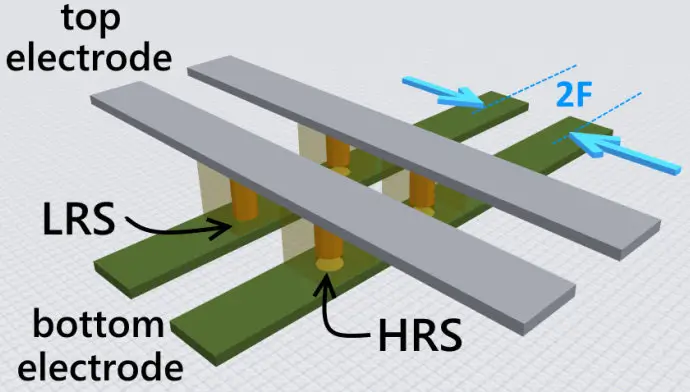Sb2Te3 as a Research Material for ReRAM Devices: An In-Depth Overview

Sb2Te3 as a Research Material for ReRAM Devices: An In-Depth Overview Introduction The rapid evolution of technology in recent decades has driven the need for faster, more efficient, and reliable memory devices. Among the various types of non-volatile memory, Resistive Random-Access Memory (ReRAM) has gained significant attention due to its promising performance in terms of […]
Future Opportunities and Scope of ReRAM Devices

Future Opportunities and Scope of ReRAM Devices Introduction Resistive Random-Access Memory (ReRAM) is emerging as a transformative technology in the realm of non-volatile memory (NVM). With its high-speed operation, low power consumption, and superior scalability, ReRAM is poised to replace conventional memory technologies like Flash and DRAM. As industries push for more energy-efficient, high-performance, and […]
ReRAM: An Emerging Memory Technology Transforming the Future of Data Storage

ReRAM: An Emerging Memory Technology Transforming the Future of Data Storage As we push the boundaries of computing and data processing, the demand for faster, smaller, and more energy-efficient memory continues to rise. Conventional memory technologies like DRAM and Flash, while having served reliably for decades, are beginning to show limitations in terms of scalability, […]
Hexagonal Boron Nitride (h-BN): The Next Frontier for ReRAM Technology

Hexagonal Boron Nitride (h-BN): The Next Frontier for ReRAM Technology In the fast-paced world of next-generation memory devices, Resistive Random-Access Memory (ReRAM) has been gaining serious traction as a promising non-volatile memory solution. Amid the many materials being explored for this technology, Hexagonal Boron Nitride (h-BN) – a 2D material with outstanding physical and electrical properties—is […]
Difference Between Memristor and ReRAM

Difference Between Memristor and ReRAM The terms Memristor and ReRAM are often used interchangeably, but they refer to slightly different concepts, though they share similar properties and applications in the world of memory technology. Both of these devices are types of non-volatile memory, meaning they retain information even when power is lost. Let’s dive deep […]
Why ReRAM is Emerging as a Revolutionary Technology Despite the Existence of Traditional RAM

In today’s tech-driven world, random access memory (RAM) is an essential component in almost every computing device, from smartphones to high-performance servers. It acts as temporary, high-speed memory that enables a device to access and store data quickly. But as technology advances and new challenges arise in terms of performance, energy consumption, and scalability, researchers […]
Understanding ReRAM IV Characteristics: A Deep Dive into LRS and HRS States

Resistive Random-Access Memory (ReRAM) has emerged as a promising candidate for next-generation memory devices due to its high-speed operation, low power consumption, and potential for integration with existing semiconductor technologies. ReRAM is a type of non-volatile memory that relies on the resistance switching properties of a dielectric material (usually a metal oxide) to store data. […]
Understanding RAM: Working Principle and Mechanism

Random Access Memory (RAM) is one of the most critical components in any computing system, whether it’s a personal computer, smartphone, or even servers used by data centres. RAM acts as the short-term memory for devices, providing quick access to data that is actively being used. In this blog, we’ll explore the fundamental working principle […]
Understanding Resistive Random-Access Memory (ReRAM): The Future of Memory Technology

In the ever-evolving world of technology, the demand for faster, more efficient, and more reliable memory solutions is relentless. As traditional memory technologies like DRAM (Dynamic Random-Access Memory) and NAND flash approach their physical limits, researchers and engineers are exploring alternative solutions that can meet the growing needs of modern computing. One such promising technology […]
Research Review on Biodegradable Materials for Resistive Switching Memory Device Applications

With the increasing need for sustainable technologies, biodegradable materials have garnered significant interest in various electronic applications. Among the many uses, resistive switching memory devices (RSMs) stand out as promising candidates for non-volatile memory storage due to their potential for faster operation, lower energy consumption, and high scalability. The concept of using biodegradable materials in […]

